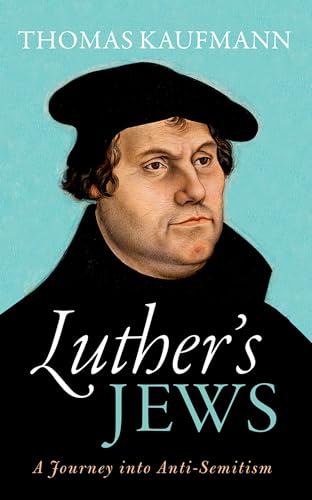Dating Deuteronomy: The Wellhausen Fallacy
Written by Josef Schubert Reviewed By Paul BarkerAs one who has loved Deuteronomy for over thirty years, I am far from jealous when someone claims to be “Dating Deuteronomy.” The more who date and then love Deuteronomy the better!
Nonetheless, the issue of establishing the date of the Book of Deuteronomy remains highly contentious in Old Testament scholarship, a lynchpin for the Old Testament to use the language of Gordon Wenham many years ago (“The Date of Deuteronomy: Linch-Pin of Old Testament Criticism: Part 1,” Them 10 [1985]: 15–20; and Part 2, Them 11 [1985]: 15–18). Since de Wette, and then more famously and popularly Wellhausen, the view that Deuteronomy dates from the time of Josiah continues to retain significant popularity. When I published a small book on Deuteronomy by an evangelical Australian publisher over twenty years ago (Deuteronomy: The God who Keeps Promises [Melbourne: Acorn Press, 1998]), the editor wanted me to reflect Josianic origins, something she simply assumed uncritically. Though Wellhausen’s hypothesis has met considerable critique and modification over the past 150 years, a Josianic origin of Deuteronomy remains often astonishingly intractable as a theory.
Schubert’s book is a refreshing argument aimed at dismissing the Wellhausen fallacy of late dating of Deuteronomy, P, and the general reconstruction of Israelite history and religion. To that end I am in full agreement with Schubert’s thrust. As Schubert points out at different points, Wellhausen’s theory is largely built on successive steps of speculation. One of the appeals of this book is its refreshing sense of logic, likelihood, and reason.
Schubert writes from an explicitly secular perspective, though from a Jewish ethnicity. He studied under Cassuto, Segal, Mazar and others in the 1940s in Jerusalem but then turned to psychology. Now Emeritus Professor at the University of Regina, Canada, he helped found the department of Jewish studies because he was appalled at the lack of biblical knowledge among students. Now in his nineties, I believe, this is his first book, and extremely helpful it is indeed.
Schubert’s main arguments focus at times on Hebrew language, analyzing the nature of Israelite religion and cultic practice, and in general arguing for the logical consistency of the Pentateuch. The first section, consisting of three chapters, deal with the problem, as he sees it, of the Wellhausen hypothesis and archaeological assumptions. The second section of three chapters discusses the Torah, namely the composition of the Pentateuch, its religion, and then a chapter on Deuteronomy specifically. The final section, of five chapters, is under the heading of the “Ethnogenesis of Israel.” Here Schubert traces his understanding of the origins and history of Israel. The chapters in turn look at the tradition of a wandering Aramean to a Nation bound by covenant, from the conquest to monarchy, religion during the monarchy, the prophets and finally the exile.
At each point he undermines the assumptions of the Wellhausen school’s reconstruction of the development of Israelite religion. In particular he asserts clearly that monotheism was original to Moses, at least, and in the Patriarchs, and was not an evolution of ancient Israel. He argues this is the most likely scenario historically as well. He attacks the minimalist archaeological view asserting that logically the unity of monotheistic Israel pre-conquest is much more likely than the non-conquest views, and more consistent with archaeology as well.
Schubert asserts convincingly that the Pentateuch was recognized as an entity before the separation of Israel into two kingdoms after Solomon. The closeness of the Samarian Pentateuch and that of the Hebrew Bible testify to this. So it is inconceivable, he argues, that either is copied from the other; the most reasonable, likely, and logical answer is that the Pentateuch originated pre-division. He also argues persuasively that the idea of editing earlier Scriptures is hard to believe when they were regarded as sacred books. Such editing of a Scripture was unheard of in the ancient world.
Schubert’s approach to Hebrew aims to substantiate his argument, claiming that, for example on sacrifices at high places, the Hebrew has been misunderstood and wrongly used to support Wellhausen, et al.
I have never been convinced by the “pious fraud” theory of Wellhausen. And inconsistencies, contradictions or clunky repetitions are not best explained by redactors or by weaving sources together. Such views surmise incompetent redactors at best. If an editor can draw together such nuances and tensions, then so too can an author. Hooray for Schubert’s book, bringing some common sense back into the debate and contributing to what needs to be done—a total debunking of Wellhausen’s fallacious hypothesis. In doing so, Schubert shows the ripple effects of Wellhausen that spread all the way through Old Testament study.
The book has plenty of minor typos that could be cleaned up for reprinting. Nonetheless it is eminently readable, refreshing and ought to be read by anyone studying Deuteronomy.
Paul Barker
Paul Barker
Myanmar Evangelical Graduate School of Theology
Yangon, Myanmar
Other Articles in this Issue
In appreciation for the recent resurgence of interest in biblical theology and typological interpretation, this article considers Jonathan Edwards’s typological interpretive practices and principles...
The Insights and Shortcomings of Kantian Ethics: Signposts Signaling the Truthfulness of Christian Ethics
by Zachary BreitenbachImmanuel Kant proposed what he considered to be the one true ethical system—a system rooted in pure reason, without recourse to grounding morality in God, that sought to explain universal moral truth...
The Doctrine of Scripture and Biblical Contextualization: Inspiration, Authority, Inerrancy, and the Canon
by Jackson WuThis essay explores the relationship between contextualization and an evangelical doctrine of the Bible, with a special emphasis on biblical inspiration, biblical authority, biblical inerrancy, and the biblical canon...
Can We Hasten the Parousia? An Examination of Matt 24:14 and Its Implications for Missional Practice
by C. J. MooreAmong the many possible motivations for mission participation, the eschatological motivation for missions has recently grown in prevalence...
“Striving for Glory with God”: Humility as the Good Life in Basil of Caesarea’s Homily 20
by Coleman M. FordBasil of Caesarea (c. AD 330–379) presents humility as the essence of the good life in his Homily 20...







